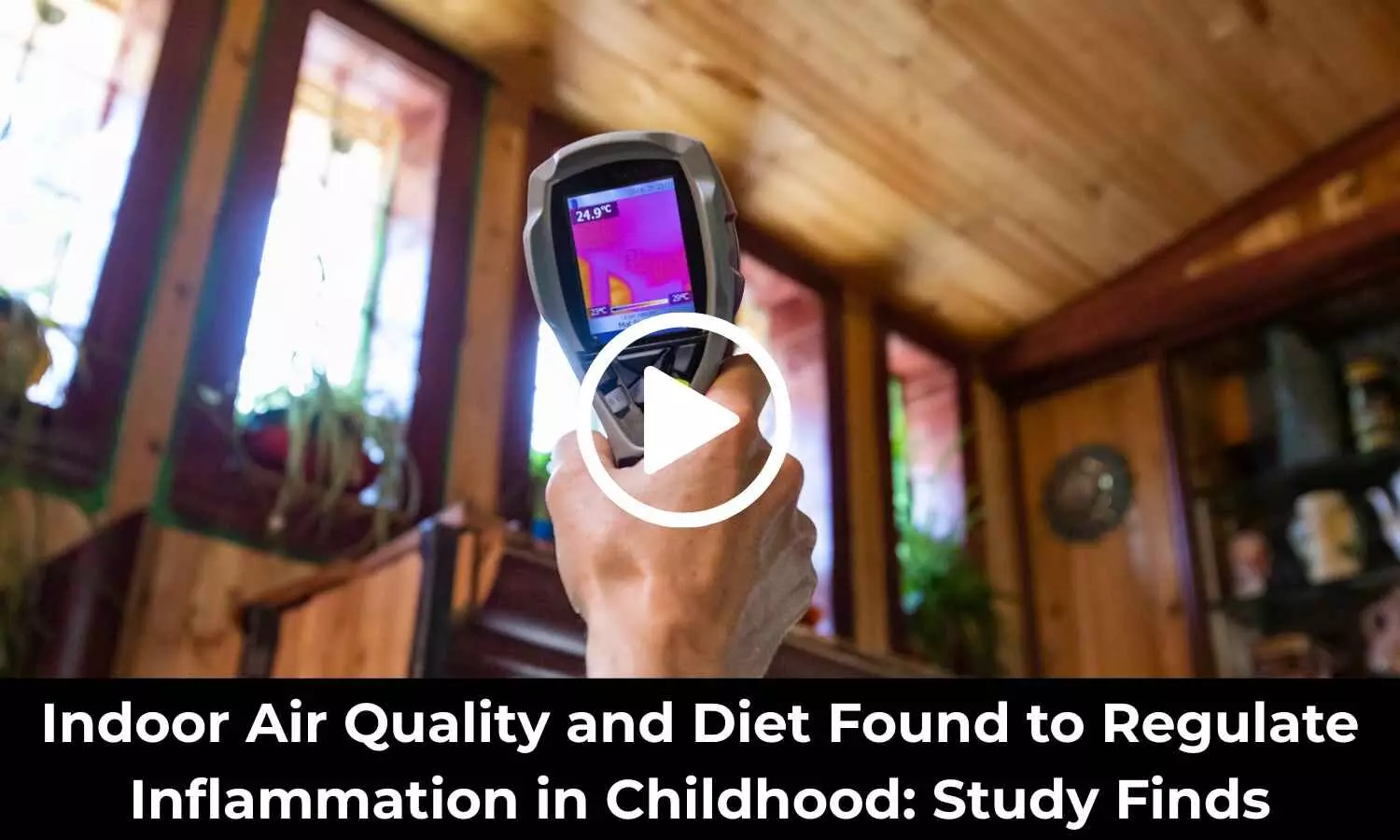Indoor Air Quality and Diet Found to Regulate Inflammation in Childhood: Study Finds
- byDoctor News Daily Team
- 09 September, 2025
- 0 Comments
- 0 Mins

A new study published inEnvironment Internationalreveals that better indoor air quality, proximity to natural spaces, healthy diets, and strong social networks are associated with reduced and better-regulatedinflammationin children. The findings, which form part of the Human Early Life Exposome (HELIX) cohort under the ATHLETE project, provide valuable insight into how early-life environmental exposures influence long-term immune health. The environment in which children grow up plays a critical role in shaping their lifelong health. The study focuses on the exposome—a concept that captures the totality of environmental exposures from conception onward, includingair pollution, nutrition,stress, and social factors. The study analyzed data from 845 children across six European birth cohorts in the UK, France, Spain, Lithuania, Norway, and Greece. Researchers assessed 91 environmental exposures grouped into 13 categories, including air pollution, chemical agents, diet, physical activity, sleep, tobacco exposure, and socioeconomic indicators. “To assess immune health, we analyzed blood samples from each child using three biological layers: white blood cell composition, plasma protein concentrations and genome-wideDNAmethylation of white blood cells,” says Ines Amine, the study’s first author. Using advanced statistical models and a high-dimensional reduction algorithm called Regularized Generalized Canonical Correlation Analysis (RGCCA), the team identified immune “signatures” associated with better composite health outcomes. Three such signatures—two protein-based and one involving white blood cells—were linked to reduced inflammation and improved immune regulation. “Our findings emphasize the importance of these environmental factors in mitigating immunotoxicity related to child health,” concludes Léa Maitre, coordinator of the Exposome Hub at ISGlobal and last author of the study. “Improving indoor air quality, supporting healthy diets, preserving access to natural spaces, and strengthening community support systems are actionable strategies that can promote better key inflammatory processes, which hold significant clinical relevance for cardiometabolic, respiratory and neurodevelopmental health in children.” Reference:Amine, I., Anguita-Ruiz, A., Guillien, A., Basagaña, X., Bustamante, M., Borràs, E., Cirach, M., Dedele, A., Dobaño, C., Garcia-Aymerich, J., Granum, B., Grazuleviciene, R., González, J. R., Julvez, J., Keun, H., López-Vicente, M., McEachan, R., Moncunill, G., Nieuwenhuijsen, M., … Maitre, L. (2025). Early-life exposome and health-related immune signatures in childhood. Environment International, 202(109668), 109668. https://doi.org/10.1016/j.envint.2025.109668
Disclaimer: This website is designed for healthcare professionals and serves solely for informational purposes.
The content provided should not be interpreted as medical advice, diagnosis, treatment recommendations, prescriptions, or endorsements of specific medical practices. It is not a replacement for professional medical consultation or the expertise of a licensed healthcare provider.
Given the ever-evolving nature of medical science, we strive to keep our information accurate and up to date. However, we do not guarantee the completeness or accuracy of the content.
If you come across any inconsistencies, please reach out to us at
admin@doctornewsdaily.com.
We do not support or endorse medical opinions, treatments, or recommendations that contradict the advice of qualified healthcare professionals.
By using this website, you agree to our
Terms of Use,
Privacy Policy, and
Advertisement Policy.
For further details, please review our
Full Disclaimer.
Recent News
NEET 2025: TN Health extends round 3 choice fillin...
- 31 October, 2025
DME Gujarat extends PG Ayurveda, Homeopathy round...
- 31 October, 2025
Decade-Long Study of PCI and CABG in Left Main Cor...
- 31 October, 2025
Daily Newsletter
Get all the top stories from Blogs to keep track.


0 Comments
Post a comment
No comments yet. Be the first to comment!